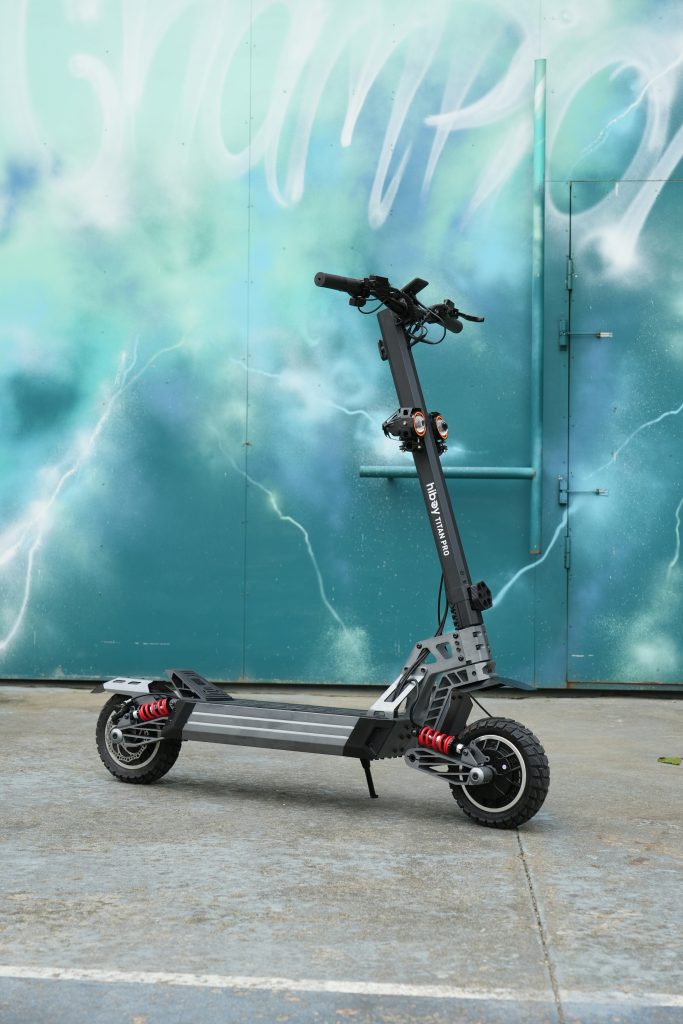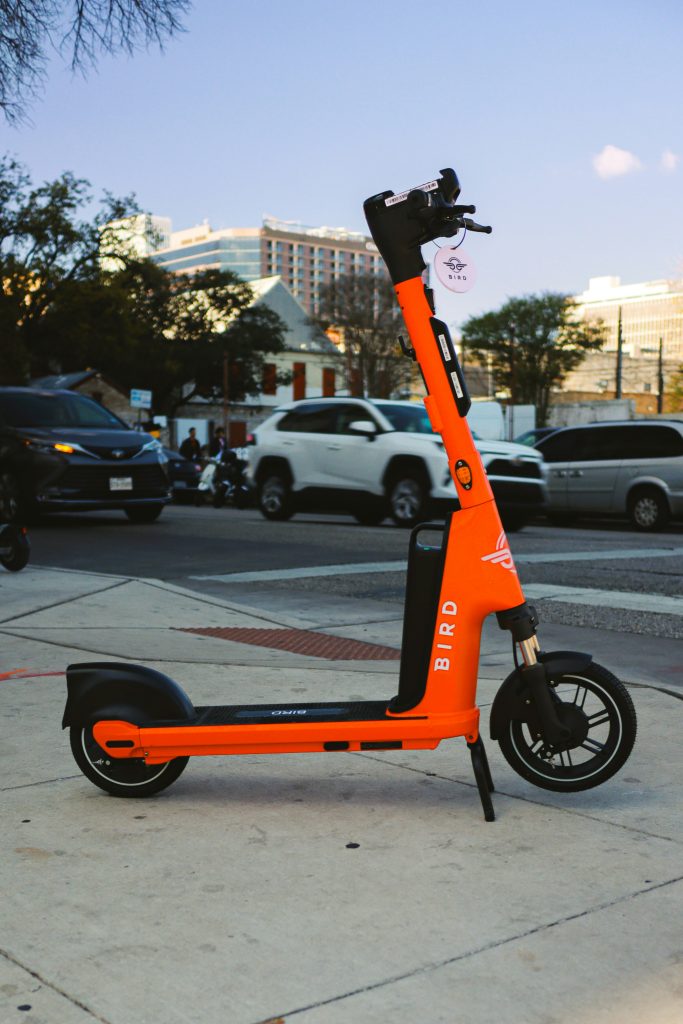Are there any age restrictions for renting a mobility scooter?
Are There Any Age Restrictions For Renting A Mobility Scooter?
You might be wondering whether you, a family member, or someone you care for needs to meet an age requirement before renting a mobility scooter. This is a common question because mobility scooters are powered devices that affect safety, legal liability, and accessibility. Below you’ll find a thorough, friendly, and practical guide to help you understand typical age-related rules, what to expect from rental companies, safety considerations, and how to proceed if the person who needs the scooter is underage.
Quick answer — the short version
There usually isn’t a single nationwide legal minimum age for operating or renting a mobility scooter, but rules vary widely:
- Many jurisdictions do not have a statutory minimum age for mobility scooters because they are classified differently than motor vehicles.
- Most rental companies set their own age limits (commonly 18 or 21) and require ID, a credit card, and a signed waiver.
- If the person who will use the scooter is under the rental company’s minimum, you can often rent on their behalf with parental consent or accompany them.
Use this article to learn how laws and policies interact, what documents you may need, safety recommendations, and actionable steps you can take.
Why age is an important consideration
You’re asking about age because it links to safety, responsibility, and legal liability. Mobility scooters are motorized devices designed to help people with limited mobility. They’re easy to use for many adults, but certain physical or cognitive abilities are essential:
- You need to be able to control speed, steer, and stop safely.
- You need situational awareness for obstacles, inclines, and traffic when applicable.
- Rental providers must manage risk and protect themselves legally, so they impose age and competency checks.
Understanding these factors will help you pick the right scooter and rental arrangement for your situation.
Legal framework: what the law generally says
There isn’t a single global standard. Rules depend on where you are and how local authorities classify mobility scooters. The general pattern is:
- No universal legal minimum age in many places because mobility scooters are often treated like pedestrian mobility aids rather than motor vehicles.
- Road-use rules (if you’ll use a scooter on roads) can change what’s required—some jurisdictions treat higher-speed scooters differently.
- Rental companies set practical minimums and documentation rules to manage liability.
The table below summarizes typical legal and rental-policy positions by region. Note that this is a general guide; always check specific local laws and the exact rental company policy where you’ll rent.
| Region / Jurisdiction | Typical statutory/legal position | Common rental company policy |
|---|---|---|
| United States (general) | No federal minimum age for mobility scooters; state/local rules may differ | Most rental agencies require renters to be 18+; some require 21+ or require adult supervision for under-18s |
| United Kingdom | Mobility scooters not classed like mopeds; no statutory minimum age for pavement use, but Class 3 road-capable scooters have specific rules | Rental firms often set 18+; some allow younger users with adult guardian and waiver |
| European Union (general) | Varies by country; many treat scooters similar to pedestrian aids | Rental restrictions usually 18+; country-specific road rules may affect use |
| Canada | No federal minimum; provinces may have local rules | Rental providers commonly require 18+; some require 19+ in certain provinces |
| Australia | Generally treated as mobility aids; local council rules may apply | Many hire companies require 18+; exceptions possible with adult consent |

How rental company rules typically work
Rental businesses look to balance accessibility and risk management. Their policies commonly include:
- Minimum age (commonly 18; occasionally 21)
- Valid photo ID (passport, driver’s license)
- Credit card for deposit or holds
- Signed rental agreement and liability waiver
- Demonstration/test drive before leaving the premises
- Requirements for supervision or accompaniment if the user is under the minimum age
Below is a table of common policy elements and what you should expect.
| Policy element | Common practice |
|---|---|
| Minimum age | 18 is typical; some providers set 21; under-18s may be allowed with an adult signing the waiver |
| ID required | Government-issued photo ID |
| Payment/deposit | Credit card hold or deposit; damage/security deposit possible |
| Waiver | Standard liability and damage waiver required |
| Medical verification | Sometimes requested for long-term rentals or high-performance scooters |
| Training/demo | Short on-site demonstration and trial run provided |
| Supervision | Required for young or cognitively impaired users; companion must be an adult |
If you’re planning to rent, call the company ahead of time and confirm their specific requirements so you aren’t surprised.
Types of mobility scooters and recommended age considerations
Not all mobility scooters are the same. They vary in size, speed, and capability. Age suitability is often less about chronological age and more about physical and cognitive maturity.
- Travel/portable scooters: Lightweight, foldable, lower top speeds. Often easiest to handle and may be more appropriate for younger users with supervision.
- Mid-size scooters: Stable and comfortable for daily use; require more room to maneuver and a bit more skill.
- Heavy-duty / bariatric scooters: High weight capacity and larger frames; designed for adults but harder to control for smaller or younger users.
Table: Scooter types and age/skill guidance
| Scooter type | Typical speed | Recommended age/skill considerations |
|---|---|---|
| Portable / travel | 2–4 mph | Often suitable for teens with physical need if supervised; best for short distances |
| Mid-size | 4–6 mph | Usually better for adult users; older teens may be okay with training |
| Heavy-duty / road-capable | 6–8+ mph | Intended for adults; not recommended for children or inexperienced users |
Always evaluate the intended user’s physical size, strength, coordination, and judgment. Speed limiting features and adjustable controls can help manage risk.
Health and safety considerations (what you should check)
When you rent, safety should be the top priority. Consider these points before using a mobility scooter:
- Balance and coordination: You should be able to safely embark/disembark and steer without losing balance.
- Medication effects: Some medications can affect reaction time and balance; check with the prescribing clinician if you have concerns.
- Cognitive ability: You should understand basic rules of movement and respond appropriately to hazards.
- Vision and hearing: Enough situational awareness to recognize obstacles and traffic.
- Strength and range of motion: To operate the tiller, brakes, and transfer in/out of the scooter.
- Weight and size compatibility: Confirm the scooter’s weight capacity and seat dimensions match the user.
- Environmental conditions: Inclines, curbs, wet surfaces, and crowded areas present hazards.
If you have any doubts, ask the rental provider for a short assessment and a trial drive. They should offer a demonstration and let you test the scooter in a safe area.
If the user is under 18 — options and steps you can take
If the person needing the scooter is younger than the rental company’s minimum age, you generally have several options:
- Rent on behalf of the minor: An adult signs the rental agreement and accepts legal responsibility.
- Provide supervision: The company may allow use if a responsible adult accompanies the minor at all times.
- Obtain medical authorization: Provide a written recommendation from a physician explaining the medical need.
- Look for specialized pediatric mobility providers: Some shops and medical suppliers cater specifically to children with mobility needs and offer pediatric scooters or tailored solutions.
Steps to take:
- Call the rental company ahead of time and explain the situation.
- Ask whether they rent to minors with adult supervision and what documentation is required.
- Bring signed parental consent, photo ID for the adult, and any medical letters or prescriptions.
- Request a full demonstration and a low-speed setting or speed governor if available.
- Ensure the adult renting is prepared to take full responsibility for damage, safety, and proper use.

Renting for someone else — caregivers and proxies
If you’re renting for someone who can’t do it themselves, you should be ready to provide appropriate documentation and to accept responsibility as required by the rental company:
- Photo ID and credit card for the person renting.
- A signed form proving you have authority to rent on their behalf if the user is the renter’s dependent.
- A medical authorization or note from the user or their healthcare provider may help.
- Make sure the end user (or their guardian) reads and understands the rental agreement and waiver.
If the person has a durable power of attorney or legal guardian arrangement, rental companies may accept that if you can show documentation.
Insurance, liability, and damages — what you should know
You should expect the rental company to protect itself against damage and liability. As the renter (or the adult signing on behalf of the user), you should be aware of these financial risks:
- Credit card hold or deposit: Most companies place a hold for potential damage.
- Damage waiver options: Many providers sell a damage waiver or insurance at an extra fee to reduce your liability. Read the exclusions carefully.
- Personal liability: You may be held financially responsible for damage to the scooter, third-party injury, or property damage if caused by negligence.
- Home or travel insurance: Some policies may cover rented mobility equipment under personal property or liability sections — check with your insurer.
- Medical claims: If someone is injured while using the scooter, the rental agreement’s waiver may affect your ability to make or defend claims.
Always read the rental contract fully and ask about insurance options so you understand the financial exposure.
Battery and travel rules (airlines/cruises/public transport)
If you plan to travel with a rented mobility scooter or use it on a cruise/get it delivered to a hotel, be aware of battery and transport rules:
- Battery type matters: Lead-acid vs. lithium-ion. Lithium batteries have watt-hour (Wh) ratings that determine airline acceptance.
- Airlines: Most airlines allow mobility devices but require prior notification. Lithium-ion batteries above a certain Wh limit require airline approval and special handling. Check airline policies well before travel.
- Cruises: Cruise lines often have age and mobility restrictions and may require medical clearance. Some lines restrict scooter use in tight gangways or request information in advance.
- Public transit: Local transit agencies have policies for mobility devices on buses and trains; many only accept devices below certain widths or with non-lithium batteries. Check local transit authority rules.
When renting for travel, inform the rental company where you’ll be using the scooter and check transportation carriers’ policies in advance.
Training, demonstration, and on-site checks
Good rental providers will:
- Give a thorough demonstration of controls, braking, and safe turning.
- Let you test drive the scooter in a safe area to check comfort and control.
- Adjust the seat and tiller for correct posture and reach.
- Recommend and provide accessories like seat belts or anti-tip features if needed.
You should insist on a demo even if you’ve used a scooter before. Scooters vary in handling and speed.

Accessibility law and renting — what you should expect
In many countries, laws protect the rights of people with disabilities to access goods and services. That can include rental services:
- Businesses considered public accommodations (hotel, rental shops) may have obligations to provide reasonable modifications and not discriminate.
- However, businesses can set neutral safety requirements (such as age policies) as long as they’re applied consistently and not discriminatory.
- If you feel a policy is unfair or discriminatory, you can ask for reasonable accommodations or consult a local disability rights agency.
If you encounter a barrier, ask to speak to a manager and explain the medical need. A doctor’s note may make a difference.
What to check in the rental agreement — your checklist
Before signing, make sure you understand and confirm:
- Age-related terms: Who is allowed to use the scooter; whether minors are permitted and under what conditions.
- Liability details: What you’re responsible for financially in case of damage or theft.
- Deposit and payment: Amount of deposit and how/when it’s released.
- Insurance or damage waiver: Cost, what it covers, and exclusions.
- Battery rules and replacement policy: What happens if the battery dies or fails.
- Delivery and pickup terms: If the rental includes delivery, assembly, and removal.
- Damage reporting procedure: How to report incidents and where to take the scooter for repairs.
- Cancellation and refund policy: Fees and timelines.
- Training/demo availability: Confirm that a training session or demo will be provided before use.
Keep a copy of the signed agreement and the provider’s contact details with you at all times while using the scooter.
Practical scenarios and how to handle them
Scenario 1 — You’re renting for a teenage family member:
- Call ahead and explain the situation.
- Offer a medical note if available.
- Be prepared to sign as the responsible adult and supervise usage. Request a speed-limited or portable model.
Scenario 2 — You need a rental for an elderly family member:
- Choose a stable mid-size scooter.
- Confirm the rental company will give a full demonstration and offer an anti-tip device if needed.
- Consider renting door-to-door with delivery and training.
Scenario 3 — You plan to use the scooter on vacation, including flights:
- Check airline rules and battery limits.
- Arrange scooter delivery to/from your destination and confirm port/cruise policies if applicable.
- Notify your airline and book assistance in advance.
Scenario 4 — You have a child with a mobility need:
- Consult pediatric mobility specialists for appropriate equipment.
- Ask for equipment specifically designed for children (pediatric providers can customize).
- Ensure the equipment is safe and you have appropriate training and supervision.
Frequently asked questions (FAQs)
Q: Is there a federal law that sets a minimum age for mobility scooter use? A: In most countries there isn’t a single federal or national minimum age for mobility scooters; instead, local regulations and rental company policies apply.
Q: Can a minor use a mobility scooter in public spaces? A: Public-use rules depend on local regulations. A minor may be allowed to use a scooter in sidewalks and pedestrian areas, but rental companies and local authorities may impose restrictions for safety.
Q: If the rental company won’t rent to someone under 18, can an adult sign on their behalf? A: Yes, many companies allow an adult to sign the agreement and assume responsibility, but you should confirm this policy ahead of time and be prepared to supervise.
Q: Are mobility scooters allowed on roads? A: Some scooters (higher-speed, Class 3 style) are road-capable and may require registration or specific rules. Check local traffic laws before using a scooter on the road.
Q: Can you get a discount for long-term rentals or if you need a scooter for medical reasons? A: Some suppliers offer long-term rental or leasing options and may accept prescriptions or doctor referrals. Ask about medical rental rates.
Q: What about airline battery restrictions? A: Airlines permit many mobility batteries but have rules for lithium-ion batteries (Wh limits) and sometimes require advance approval. Inform the airline well before travel.
How to choose the right scooter when age is a concern
When age is a factor, prioritize the following:
- Low speed and easy controls for younger or less experienced users.
- Simplicity — minimal controls and clear brakes.
- Adjustable seating and tiller to fit the user’s size correctly.
- Anti-tip wheels and stable base for added safety.
- Portable options only if the user has enough balance for transfers.
- Pediatric equipment for children with special growth and support needs.
Ask the rental company for models they consider suitable for younger or older users and request an onsite trial.
Tips for supervising a young scooter user
If you will supervise someone under the rental age, consider these practical tips:
- Stay close during initial use until you’re convinced the user is comfortable and competent.
- Use a low-speed setting or a governor if available.
- Teach proper braking, signaling, and turning maneuvers in a quiet, obstacle-free space.
- Monitor for fatigue and confusion—stop use if the user becomes tired or distracted.
- Plan routes with smooth surfaces and minimal traffic or curb crosses.
Supervision reduces risk and increases the chance the experience will be safe and pleasant.
What to do if you disagree with a rental company’s age policy
If a rental company’s policy seems overly strict or unfair:
- Ask for a manager and explain the situation calmly, including any medical documentation.
- Offer additional assurances: a higher deposit, a supervised use agreement, or a medical letter from the user’s clinician.
- If denied and you feel discrimination is involved, contact a local disability rights organization or consumer protection agency for advice.
Businesses are allowed to make reasonable safety rules, but they must not unlawfully discriminate.
Final checklist before you rent
- Call the rental company and confirm age rules, ID, deposit, and whether you can sign on behalf of a minor.
- Confirm the scooter model and that its capacity and dimensions match the user.
- Request a demonstration and trial run before leaving the shop.
- Bring any medical documentation if it might help secure a rental or appropriate model.
- Check insurance/damage waiver options and understand liability.
- If traveling, notify airlines or cruise lines about batteries and assistance needs.
- If supervising a minor, plan to stay with them until they’re fully competent.
Closing thoughts
You deserve a clear, safe, and practical answer to the question about age restrictions for renting a mobility scooter. There’s no single rule that applies everywhere: statutory laws typically leave scooters in a different category than motor vehicles, and rental companies set their own policies to manage safety and liability. That means you often have flexibility, especially if you prepare by calling ahead, providing documentation, accepting responsibility when appropriate, and ensuring the user gets a demonstration and the right scooter model.
If the person who needs a scooter is under the rental’s minimum age, you can usually rent on their behalf and supervise — but always clarify the company’s policy ahead of time and get everything in writing. By prioritizing safety and communication, you’ll be able to find a solution that meets mobility needs while minimizing risk.



